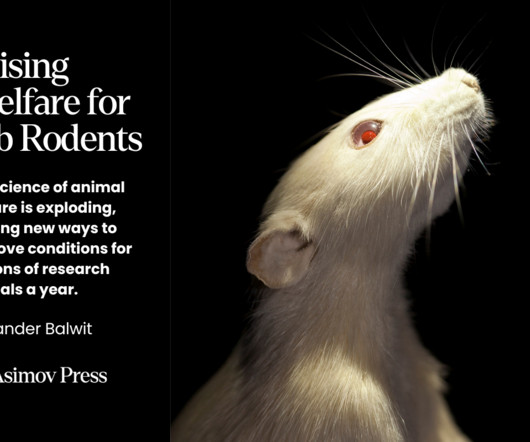Human neuronal cells: possibilities in drug safety testing
Drug Target Review
SEPTEMBER 26, 2023
Human derived induced pluripotent stem cells (hiPSCs) have revolutionised research and are increasingly used for toxicology screening and disease modelling. Ther Innov Regul Sci. 2019 Mar 1;55:93–100. 27,28 Since the advent of hiPSC technology almost two decades ago enormous progress has been made in many areas of research.












Let's personalize your content